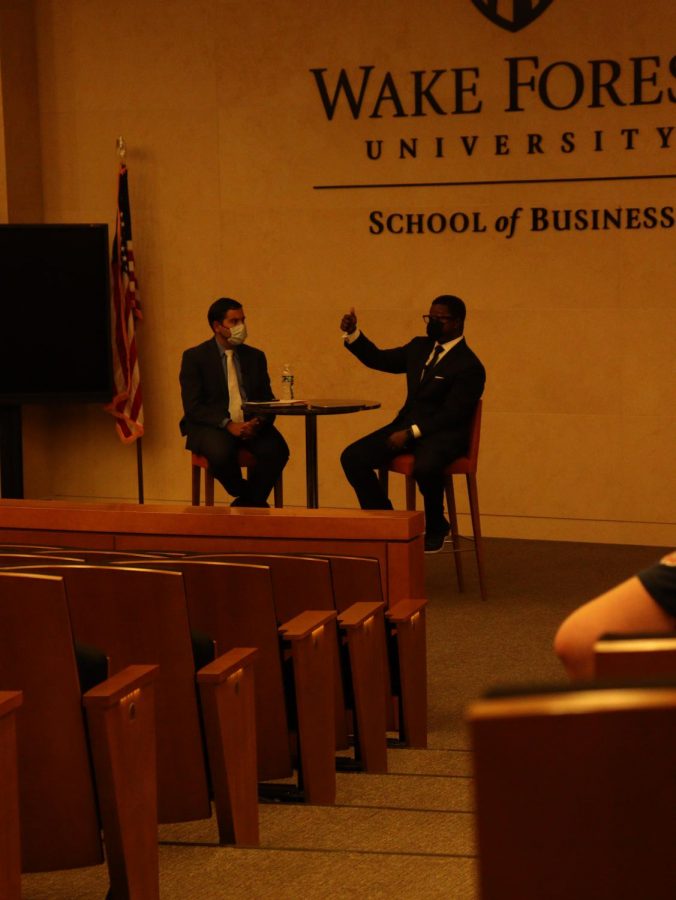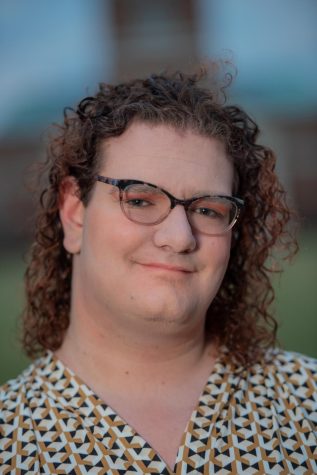Campus dialogues event centers naming guidelines
Panelists discussed and took questions on guidelines formed by the Advisory Committee on Naming
September 30, 2021
On Wednesday afternoon, Dean of the Divinity School Dr. Jonathan Lee Walton joined Vice President for Diversity and Inclusion Dr. José Villalba to discuss guiding principles on naming and renaming buildings on campus.
For Walton, who chaired the Advisory Committee on Naming, and for Villalba, who served on it, the controversy surrounding the name of the building that houses the Religion Department and Wait Chapel was fresh in mind. However, the two kept the conversation — the first in a new series called campus dialogues — mostly focused on more general principles.
Villalba also detailed possible next steps for renaming, which include a potential renaming of buildings with names that neither honor nor disparage the contributions of an individual or group. The vice president cited Magnolia, Dogwood and South Residence Halls as examples of buildings that could be renamed.
“The names can stay,” Villalba said. “Or it could be an opportunity to have names that are a bit more representative.”
Per Walton, the committee adopted five guiding principles to consider the names of buildings on campus: academic freedom; diversity and inclusion; historical analysis and thorough analysis; distinguishing between remembering and honoring; and transparency and tradition.
“I think the principles are there to hold us to account,” Walton said. “There are always extenuating circumstances and forces that impel us and animate us and inspire us to cut corners as an institution. We have to be honest about that.”
Walton continued: “When we discuss as a committee about renaming a building to honor something or thinking about who else we might honor, if someone shows up with a $10 million check, a lot of that process gets cut through real quick. What something like guiding principles do is hold us accountable to the process.”
A good portion of the question and answer period that followed the discussion centered around definitions of diversity and the dangers of casting too wide or too narrow a net.
“We understand that diversity and inclusion is always a sliding and expanding scale,” Walton said. “What may be top of mind and pressing now may be different in 10 years.”
Walton also noted that the controversy from last spring only reinforced his faith in the guiding principles.
“There was a recognition of both the sentiment of the community — which is absolutely important to take into consideration and the guiding principles that may have animated that decision,” Walton said. “For example, it was a commitment to honoring the enslaved and institutionalizing accountability, that’s the difference between honoring and remembering.”
Walton continued: “One can say ‘Well, that choice was a choice we don’t like,’ and that’s totally in the community’s power. Yet, we still need to be able to go back to the principles to say ‘what can we do to make sure we don’t just wipe away a name like Washington Manly Wingate and then in the process, wipe away what was so problematic about Washington Manly Wingate, lest it happen again.”
It’s possible that a survey may be going out soon to students about spaces on campus, including the names of certain buildings, according to Villalba.
The event was a learning experience for members of Sociology Professor Dr. Rebecca Gill’s topics class on diversity and difference in organizations, who made up the bulk of the attendees.
“Because it is a communication course, we talk about naming and language and conversation and the value of connection,” Gill said. “So, I thought it would be great to have them come and participate in the conversation here.”
She continued: “Although I know there are a good number of students who are keyed into issues like naming on campus, not all students are.” I wanted to give my students an opportunity to understand that these things we talk about in class are happening locally, so locally that it’s on our campus.”
Christian Turner, a junior who is enrolled in Gill’s class, found the experience enlightening and heartening.
“I learned a lot about the processes for deciding how things are named at this school,” Turner said. “It made me feel better about how those decisions are made.”
The Office of Diversity and Inclusion will hold its next campus dialogues event in October. The topic for that dialogue is yet to be determined.
























Steve Gunkel • Oct 3, 2021 at 9:23 pm
Correction: Professor Rebecca Gill teaches in the Communication Department (COM370; Section N).